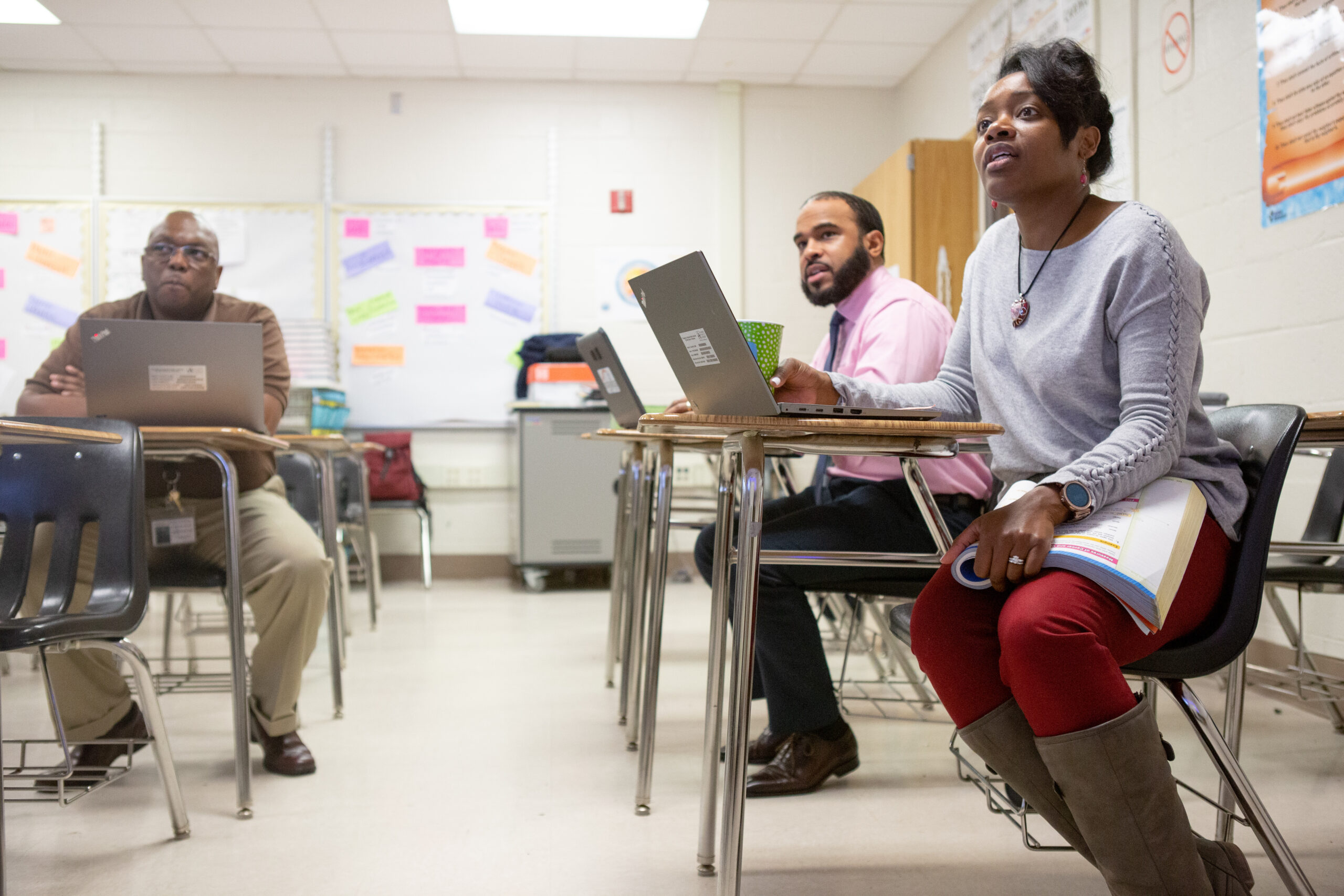By Megan Humburg and Fahmid Morshed Fahid
The EngageAI Institute scholar blog series features conversations and interviews with graduate students and postdoctoral scholars who are currently doing research within the Institute. Check out more blogs in the series here!
What progress have you made with your current research project(s) with the Institute?
Megan Humburg (MH): Currently I am working with a team of folks from Indiana University and North Carolina State University (NC State) to design a narrative-centered learning environment on the topic of food systems and food justice. I write character dialogues, design game environments, and build branching science curricula that allows students to explore multiple facets of food justice based on their own interests and choices in the game. I am also working with folks at NC State to design integrations of AI functionality with this new game, including new forms of AI-driven narrative planning that can adjust the gameplay experience for students’ interests and needed level of challenge, as well as teacher-desired scaffolds and prompts to help students while they play.
Fahmid Morshed Fahid (FF): I am presently engaged in formulating the pedagogical strategy for the EngageAI prototype. This initiative involves exploring reinforcement learning (RL) methodologies to offer individualized pedagogical assistance to students. The prototype operates within a narrative-centered learning environment, which provides students with captivating interactive narratives set in immersive virtual worlds with engaging characters and compelling storylines. Our objective is to enhance learning outcomes by dynamically steering the narrative progression. The challenge lies in devising effective strategies that accommodate students’ diverse behaviors and needs. This is known as pedagogical planning. RL relies on huge amounts of data with reward signals to learn optimal policies. This can present complications because collecting students’ interaction data and learning experiences can be expensive, as classroom studies typically involve only a couple of hundred students. To overcome this hurdle, we are constructing a framework capable of generating synthetic data by simulating student behaviors. This synthetic data serves as a foundation for formulating personalized teaching and learning strategies through RL. The framework encompasses three core components: a student agent, a pedagogical planner agent, and a simulator for narrative-centered learning environments. The policy learning is guided through a reward metric that is associated with the quality of students’ learning experiences. In essence, this framework empowers us to create synthetic data, facilitating RL-based pedagogical planning through on-demand exploration and evaluation.
What interests you about AI in education?
MH: I think AI has the potential to adapt and personalize students’ learning experiences in really valuable ways, but I also think it comes with a ton of risks that AI companies aren’t always attending to very deeply. I want to be involved in conversations around AI in education to make sure that we are using these tools to support learners’ agency and joy, rather than using them to overly monitor and control students.
FF: AI in education is captivating due to its capacity to revolutionize the learning landscape for the next generation, shaping the future. Through personalized learning, AI can tailor educational experiences to individual students, enhancing comprehension and engagement, while ensuring maximum learning opportunities. The adaptability of AI to provide hints, explanations, and feedback to maintain student interest and optimize their learning outcomes has significant potential. Meanwhile, data-driven insights through AI can also help educators make informed decisions, refining teaching strategies for better results. I am excited to contribute my knowledge to shape the future.
What is the ultimate goal of your research?
MH: The ultimate goal of my research is to deeply engage learners in authentic science inquiry experiences that show them why science is important for their everyday lives. I want to design learning environments and experiences that encourage joy, curiosity, playfulness, excitement, and a desire to create change in our communities.
FF: The goal of my research is to create policies that are personalized toward individual students and can dynamically support students based on their behavior in the learning environment. Future research can focus on enhancing the framework with more sophisticated reward models, exploring different student modeling techniques and planner agents, and investigating the application of our framework in diverse narrative-centered learning environments.

